 AI, or Artificial intelligence, leverages computers and machines to mimic the problem-solving and decision-making capabilities of the human mind. Every day, the news carries AI articles—stories of job losses and cloned personalities that threaten the very fabric of modern society. The reality is far more frightening. AI is developing at a super-fast pace and will impact us all dramatically within the new few years. ChatGPT is a chatbot developed by OpenAI and launched on November 30, 2022. Based on a large language model, it enables users to refine and steer a conversation towards a desired length, format, style, level of detail, and language. It’s a great tool for writing essays and scripts (e.g. for real estate advertising). But, ChatGPT is just the tip of an iceberg. My new novel is based on AI and how it may threaten the banking industry. In fact. my pitch has a focus on AI: Can Artificial Intelligence topple the global economy or restore financial equality? Depends whose side you’re on…
AI, or Artificial intelligence, leverages computers and machines to mimic the problem-solving and decision-making capabilities of the human mind. Every day, the news carries AI articles—stories of job losses and cloned personalities that threaten the very fabric of modern society. The reality is far more frightening. AI is developing at a super-fast pace and will impact us all dramatically within the new few years. ChatGPT is a chatbot developed by OpenAI and launched on November 30, 2022. Based on a large language model, it enables users to refine and steer a conversation towards a desired length, format, style, level of detail, and language. It’s a great tool for writing essays and scripts (e.g. for real estate advertising). But, ChatGPT is just the tip of an iceberg. My new novel is based on AI and how it may threaten the banking industry. In fact. my pitch has a focus on AI: Can Artificial Intelligence topple the global economy or restore financial equality? Depends whose side you’re on…
In the wrong hands, AI is difficult to overcome. What happens when a group of devious computer nerds steal your ID and, along with that, steal your voice? Think of the implications. How can you prove that your duplicate is not you? How can you convince your bank manager or boss that you are who you say you are, when another online “twin” makes the same claims?
Oh, it’s going to be a bumpy ride into the unknown with AI and a clever group of thieves have already planned the heist to outdo all heists. How will they do this? Well, you will have to wait for the release of my new book. 🙂

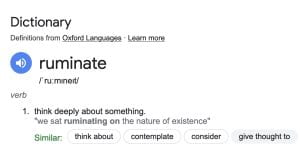
 When writing, the plot and characters are uppermost in my mind. It’s a subconscious thing and I find myself thinking about events in my novel while drifting off to sleep, only to have them punctuated by fresh thoughts. These make me force myself awake and make the necessary changes while they are fresh – “I’ll forget them in the morning,” I tell myself. There a catch though. In the morning, have to check that the new thought fits the storyline and doesn’t detract from it or overwhelm it; it has to enhance it to be effective. Ah the joys of ruminating – just going over and over my novel, like cows chewing grass:
When writing, the plot and characters are uppermost in my mind. It’s a subconscious thing and I find myself thinking about events in my novel while drifting off to sleep, only to have them punctuated by fresh thoughts. These make me force myself awake and make the necessary changes while they are fresh – “I’ll forget them in the morning,” I tell myself. There a catch though. In the morning, have to check that the new thought fits the storyline and doesn’t detract from it or overwhelm it; it has to enhance it to be effective. Ah the joys of ruminating – just going over and over my novel, like cows chewing grass: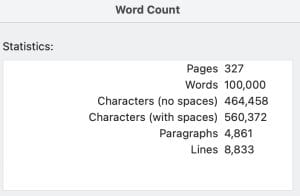
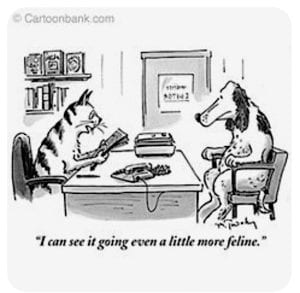 What value do I place on a professional editor? HEAPS!
What value do I place on a professional editor? HEAPS!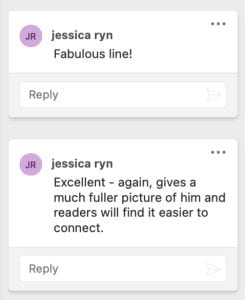
 Another dilemma—what to do with unwanted or unnecessary characters. The best idea is to let them go, but do it in such a way that it provides more tension for the main character(s). In my first thriller, the main character – Jack Colins – is chased by a woman who attempts to discover his secret. She sits next to him on a train ride to Milan and hounds her way into his life to the point of being more than annoying. At a crucial moment, Jack discovers her body in an ante-room in a small church and it’s not a pretty scene. But, her demise piles more pressure on Jack and he is forced to flee to safety in an e-type Jaguar, aided by his sister. Unfortunately, she also becomes an ‘unnecessary character’ and …. no more spoilers. But, if you really want to find out what happens to my unwanted characters, why not
Another dilemma—what to do with unwanted or unnecessary characters. The best idea is to let them go, but do it in such a way that it provides more tension for the main character(s). In my first thriller, the main character – Jack Colins – is chased by a woman who attempts to discover his secret. She sits next to him on a train ride to Milan and hounds her way into his life to the point of being more than annoying. At a crucial moment, Jack discovers her body in an ante-room in a small church and it’s not a pretty scene. But, her demise piles more pressure on Jack and he is forced to flee to safety in an e-type Jaguar, aided by his sister. Unfortunately, she also becomes an ‘unnecessary character’ and …. no more spoilers. But, if you really want to find out what happens to my unwanted characters, why not 
 It played on my mind—the need to change a name in my new book. I had chosen Dan as the name of my captain, but realised that a boyhood friend of mine – Ted Cooper – was a much better fit. Ted and I both worked backstage in a high school play; no doubt it was Shakespeare. On the final night we stayed up late and decided to celebrate with a midnight cruise in a small yacht to a volcanic island, just off the mainland. It was a memorable trip across shipping lanes and we felt the freedom of Huckleberry Finn as we ghosted under sail through the night. Unfortunately, our old wooden boat took on water, forcing us to sleep ashore. I will never forget that night, nor my good friend Ted Cooper. We lost contact with each other but I found out that Ted had passed away. He had become a captain in the merchant navy. How appropriate that I should name the captain in my thriller after my good friend.
It played on my mind—the need to change a name in my new book. I had chosen Dan as the name of my captain, but realised that a boyhood friend of mine – Ted Cooper – was a much better fit. Ted and I both worked backstage in a high school play; no doubt it was Shakespeare. On the final night we stayed up late and decided to celebrate with a midnight cruise in a small yacht to a volcanic island, just off the mainland. It was a memorable trip across shipping lanes and we felt the freedom of Huckleberry Finn as we ghosted under sail through the night. Unfortunately, our old wooden boat took on water, forcing us to sleep ashore. I will never forget that night, nor my good friend Ted Cooper. We lost contact with each other but I found out that Ted had passed away. He had become a captain in the merchant navy. How appropriate that I should name the captain in my thriller after my good friend.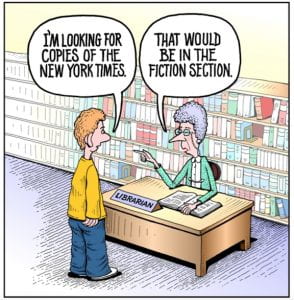 “There are two sides to every story”
“There are two sides to every story”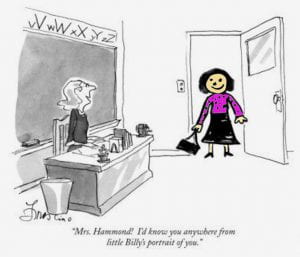 Here’s a question I have to ask myself often—how well do I know my characters? Yes, I can describe them (features like hair, makeup, dress, etc.) but do I really know them? A few years ago I met a long-lost half-brother. We talked and he was quiet, reflecting on a father he hardly knew. But, I never understood him until he told me about a letter he had written to his father. The response he got, and the way he reacted, gave me clues about the depth of his feelings. When I saw my half-brother walk away, he had the same gait as my father and my eyes were opened fully to his character. In writing, there is that elusive search to reveal a character by his or her actions, rather than through description. They give away their true identity with a gesture, body position, speech and response. In my latest novel, many of my characters are build upon people I know quite well, but others have to be fabricated from observations, etc. My goal is to have none of my characters appear flat (as in this cartoon). And, here’s a secret, one of the key characters in my book is a little like me—Oh, very well, a lot like me!
Here’s a question I have to ask myself often—how well do I know my characters? Yes, I can describe them (features like hair, makeup, dress, etc.) but do I really know them? A few years ago I met a long-lost half-brother. We talked and he was quiet, reflecting on a father he hardly knew. But, I never understood him until he told me about a letter he had written to his father. The response he got, and the way he reacted, gave me clues about the depth of his feelings. When I saw my half-brother walk away, he had the same gait as my father and my eyes were opened fully to his character. In writing, there is that elusive search to reveal a character by his or her actions, rather than through description. They give away their true identity with a gesture, body position, speech and response. In my latest novel, many of my characters are build upon people I know quite well, but others have to be fabricated from observations, etc. My goal is to have none of my characters appear flat (as in this cartoon). And, here’s a secret, one of the key characters in my book is a little like me—Oh, very well, a lot like me!